Amid Pollution and Political Indifference, Nigerians Struggle to Catch Their Breath
The fires burn constantly in and around Onitsha, a growing city nestled on the banks of the Niger River in southern Nigeria. Each fire is surrounded by its own hellscape of rotting food, mounded rubbish, castoff computers, and slaughterhouse scraps, and the blazes — often fueled with old tires sliced into ribbons — incinerate the city’s waste and send out noxious plumes of smoke laden with dangerously high levels of particulate pollution.
On the edge of one burn site, where a young boy watched as a laborer slaughtered a goat and tossed its carcass into the flames, a portable monitor recorded PM2.5 — the smallest and most dangerous form of particulate matter — at 999 micrograms per cubic meter of air, the upper limit the device could read and 40 times the World Health Organization’s guideline for an average 24-hour level of exposure. Fifty feet away, the meter still registered 283. None of the workers wore protective gear.
“This [particulate matter] is being inhaled into the lungs,” said Dr. Furo Green, a general surgeon and former chairman of the Nigerian Medical Association in the Rivers State of southern Nigeria. “Of course, it will find a way to the blood.” Later, he continued, “it will cause different issues in the body’s system, which can lead to cancers.”
Produced by combustion and a variety of natural sources, particulate matter from wood-burning cook stoves, auto exhaust, and ubiquitous red road dust also contribute to Onitsha’s infamous pollution — but it is far from the only Nigerian city threatened by toxic air. Roughly 120 miles to the south, in Port Harcourt, a city of 1.4 million people in the heart of Nigeria’s oil-producing region, decrepit refineries and illicit refining operations in the jungle foul the air. And in Lagos, the nation’s former capital and a sprawling metropolis of approximately 21 million people, aging buses, cars and trucks, fueled by high-sulfur diesel and gasoline clog the roadways — and very often, residents’ lungs.
It is a grim tableau familiar to many parts of the globe — particularly in the developing world — and air pollution is blamed for millions of premature deaths worldwide each year. But in Africa’s most populous country, the dangerously high PM2.5 concentrations are inextricably linked with some of Nigeria’s most intractable problems: crushing poverty, dysfunctional municipal services, and very often, political corruption.
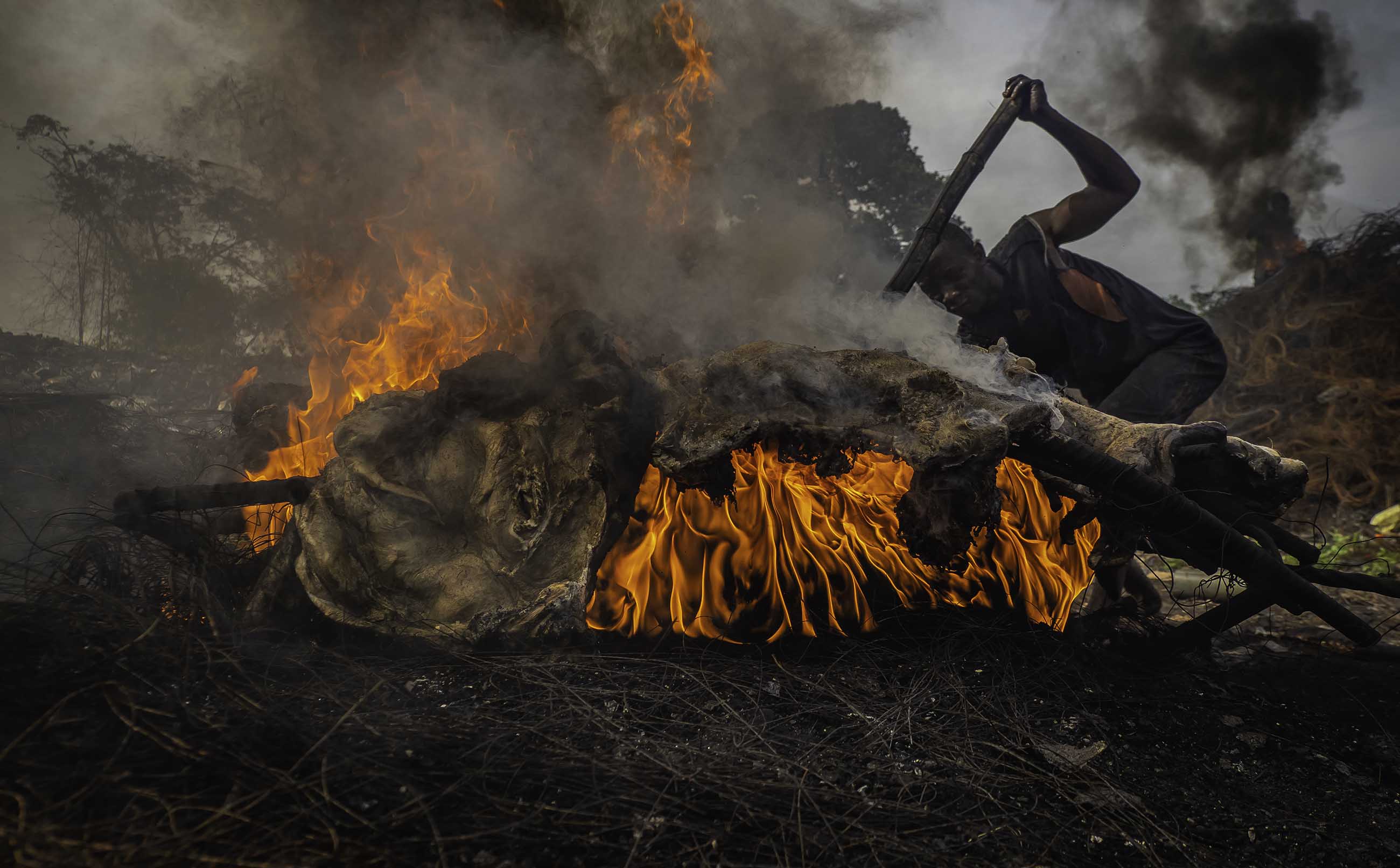
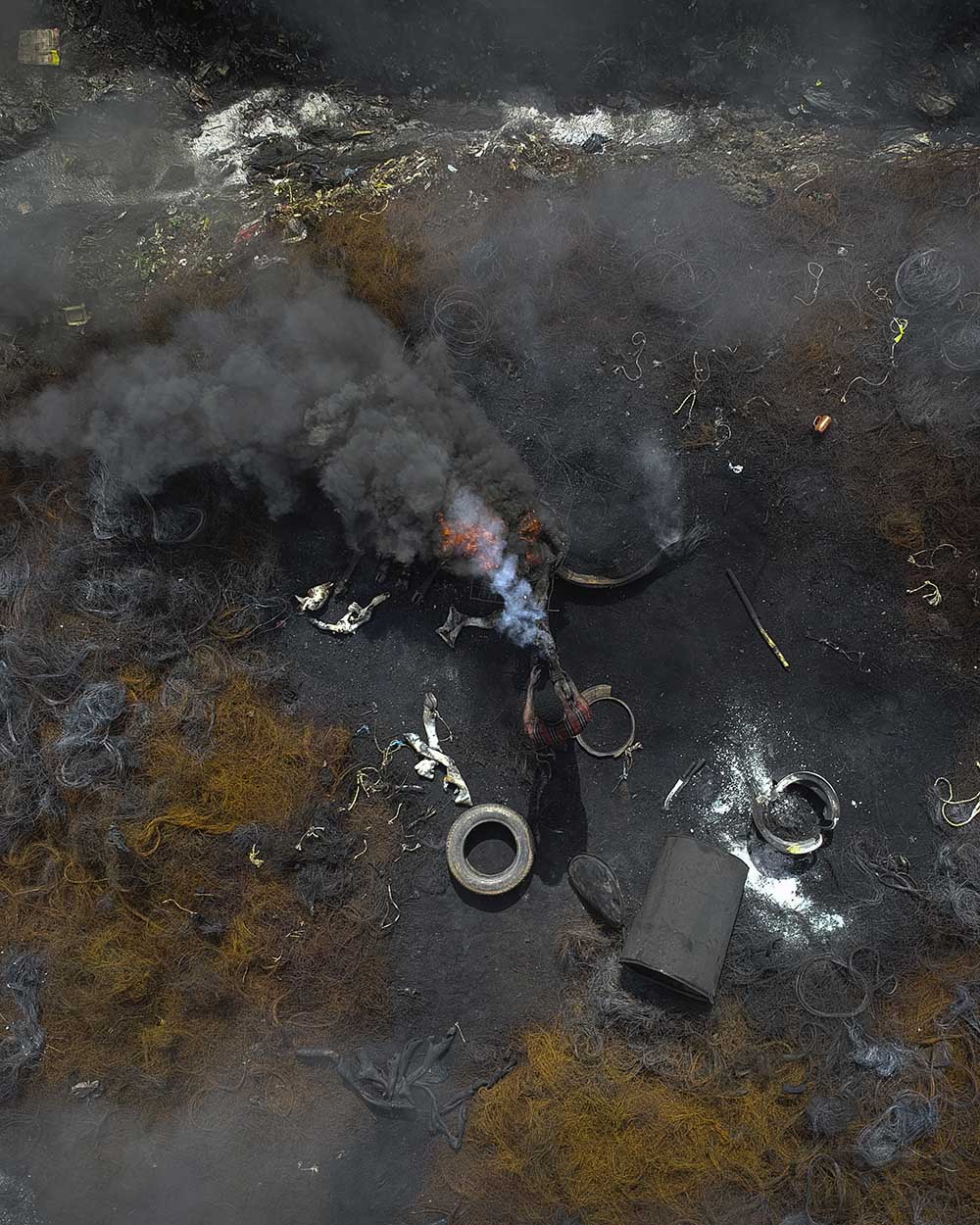
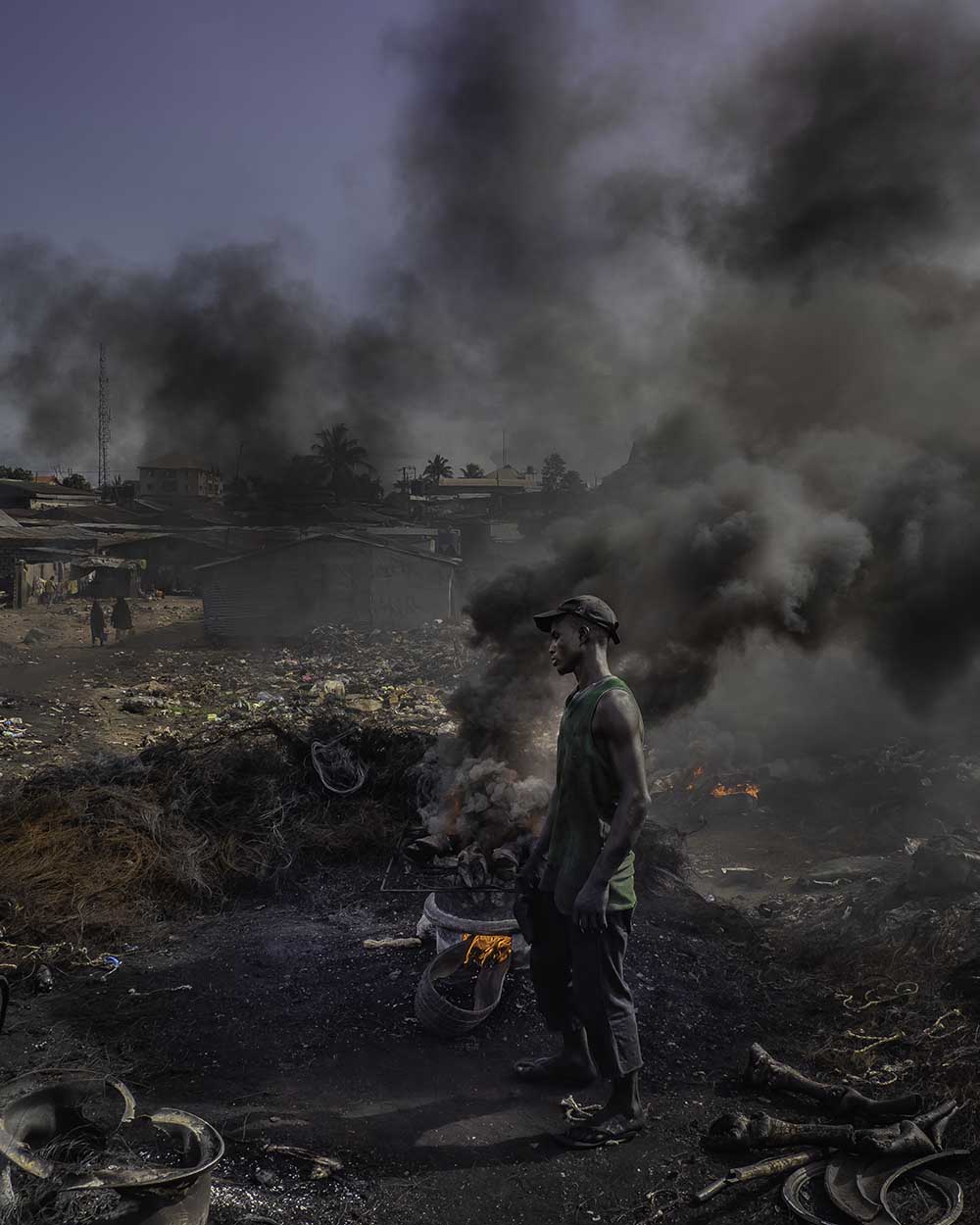
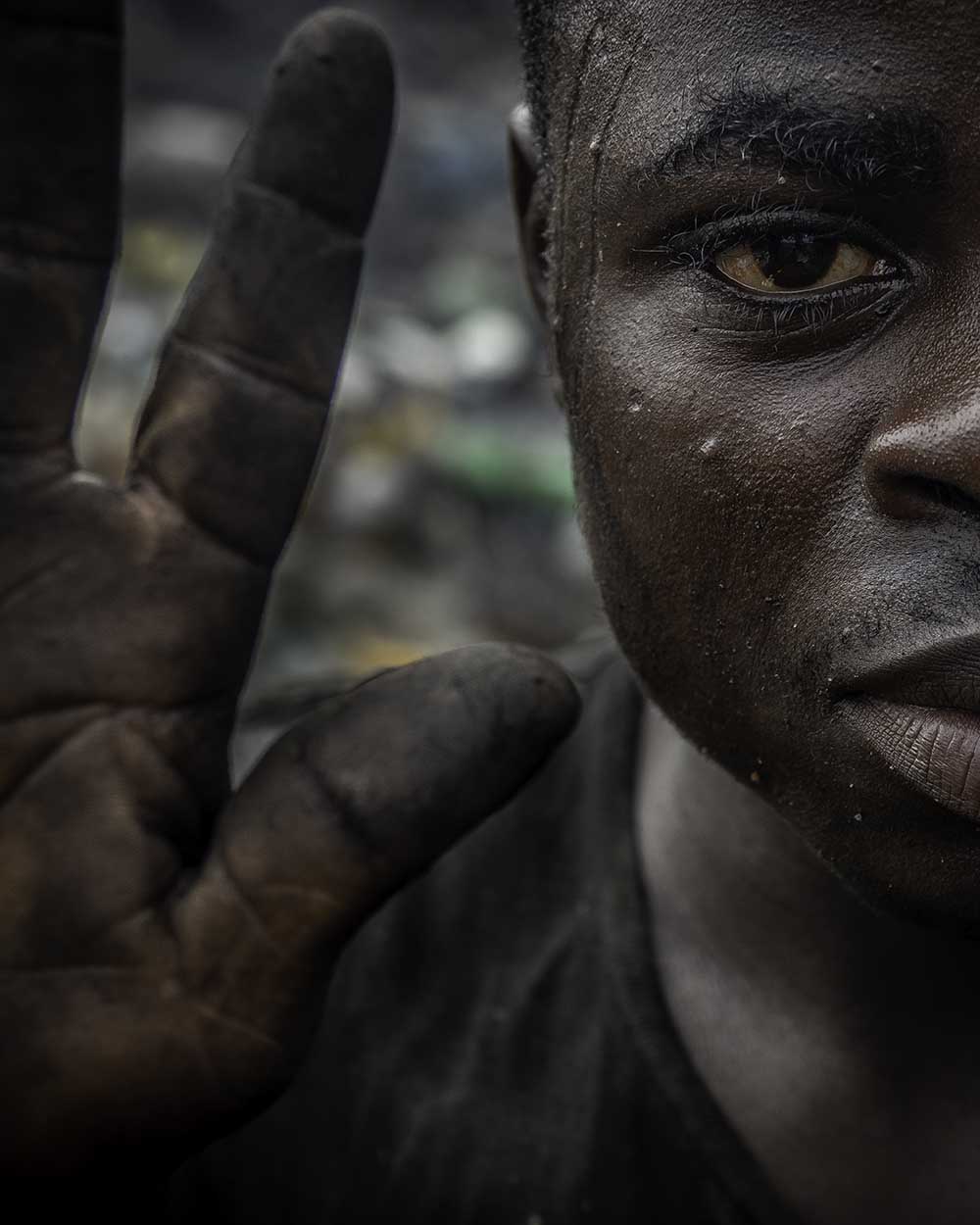
Although official monitoring is scarce here, global health authorities have singled out Onitsha’s air as particularly toxic — rivaling that of much bigger and more well-known cities in China and India. Here, drone footage captures one key reason: the perpetual burning of trash in and around the port city.
Even outside of these extreme areas, the World Bank has estimated that all Nigerians — somewhere between 182 million to 198 million people — experience a mean annual exposure of PM2.5 at 38 micrograms per cubic meter of air. That’s almost four times what global health officials consider safe. Meanwhile, efforts to combat pollution here are hampered by a lack of reliable and readily available data. While there are three reported air quality monitoring stations in Abuja, the nation’s capital, monitoring and reporting in Nigeria is, as the Indian Center for Science and Environment found, “rudimentary, discontinuous, and limited in scope and duration,” and hampered by an erratic power supply.
The latest official PM2.5 information available for Port Harcourt, according to the state’s environment commissioner Roseline Konya, comes from a 2016 sampling which recorded a high reading of 270 micrograms per cubic meter in the city. A more in-depth study, Konya said, is underway.
In the interim, most air quality information comes from international agencies and private citizens with backyard monitors. This includes Rafael Navarro, who until a recent move had regularly collected air quality data from his home in Port Harcourt. His meter, which Navarro passed to another resident, sometimes registered PM2.5 readings well above 100 micrograms per cubic meter of air — and occasionally 300 and beyond. (The U.S. Environmental Protection Agency considers anything above 55 over a 24-hour period to be unhealthy; above 250 is considered hazardous.) “Many times, Port Harcourt has been in the top,” said Navarro, who lived in the city for four years and started tracking air quality on a monitor inside his walled garden.
For more than a year, Navarro, who worked as a geoscientist in Port Harcourt, was the only person in Nigeria sharing air quality information publicly on the AirVisual network, a project of air pollution mitigation firm IQAir, which publishes real-time data from cities around the world. Monitors in Kano and Lagos have since joined the site, though the Lagos station stopped reporting in July.
Just before Christmas of 2017, Navarro’s data showed, Port Harcourt’s PM2.5 reading had hit 985.
One Port Harcourt-based oil and gas firm also does its own monitoring, and an executive shared some of the data privately with Undark on the condition that neither he nor his company be named out of concern regarding possible government reprisals. The data showed that for a 15-month period ending in June, concentrations of PM2.5 in Port Harcourt fell within the EPA’s safe limits for 24-hour exposure on just 45 days. The air quality was in the “unhealthy” range on 240 days, with 85 days ranking “very unhealthy,” and 13 days as “hazardous.”
This information would come as little surprise to local residents. Rivers is the third largest oil-producing state in Nigeria, with much of that oil moving through Port Harcourt’s terminals on the Bonny River. Despite President Muhammadu Buhari’s 2015 promise to repair Port Harcourt’s aging refineries — and build new ones — the city’s two antiquated oil processing facilities continuously pump out black smoke. Worse is a fine black soot, attributed by some people to the official refineries, but by others to the illegal oil processing operations outside the city. Even as the federal and state governments engage in a longstanding blame game over who holds responsibility for the soot pollution in Port Harcourt, the black dust can be seen coating the city’s buildings, the plants in its once lush parks, and even its people.
“It’s covering my skin,” said Sandra Ezekwesili, 29, a radio presenter who co-founded #StopTheSoot, a grassroots campaign advocating for clean air in Rivers State. “It’s covering the soles of my feet. It’s getting into my food. It’s just more than a little scary.”
Last spring, activists marched in Port Harcourt demanding air quality data from the government. The demonstration earned the ire of Nigeria’s National Broadcasting Commission regulator, who threatened to shut down and fine Ezekwesili’s radio station and two others for inciting the protest. “If I did not speak up about it,” Ezekwesili said, “we’re all just going to keep inhaling this thing.”

Since the 1950s, when large oil fields were discovered in the Niger Delta, oil production has driven Nigeria’s economic development. Today, Nigeria’s oil sector accounts for 10 percent of the country’s gross domestic product, with petroleum representing 83 percent of total export revenue — more than $38 billion in 2017.
Ironically, Nigeria, a member of the Organization of the Petroleum Exporting Countries, or OPEC, imports most of its fuel — an estimated 992,000 tons of gasoline every month — because it lacks refining capacity. That imported fuel, moreover, can contain up to 300 times the level of sulfur allowed in Europe, due in no small part to Nigeria’s lax regulations. High sulfur content in burned fuel yields sulfur dioxide, a potent air pollutant in its own right, but one that also one that reacts with other air pollutants to form constituents of PM2.5.
After missing last year’s United Nations Environment Program (UNEP) deadline, Nigeria has renewed its pledged to reduce sulfur emissions — though environmental activists suggest that such pledges might be little more than lip service.
“The Nigerian government lacks the necessary statutory and financial provisions to oversee the intrusive consequences of industrialization,” said Ako Amadi, an environmentalist based in Lagos. “Many in government feel that this [pollution] is the price to pay for the much-needed industrialization,” he added.
Such a cavalier attitude toward air pollution, if true, can have profound public health implications. “If the government does not see this as an emergency,” said Green, the former medical chair, “then … between six and 10 million people will be exposed to long-term defects which will range from fertility issues to cancers.”
PERVASIVE AIR POLLUTION
“The Nigerian government lacks the necessary statutory and financial provisions to oversee the intrusive consequences of industrialization,” one environmentalist said. In the 360-degree video below, click and drag the screen to explore three locales in Lagos and Onitsha.
At the University of Port Harcourt Teaching Hospital, the toll of heavy air pollution is already apparent to experts like Augusta Eneh, a professor of pediatrics, who said she has seen a rise in the number of patients presenting with respiratory diseases — particularly in older children who play outside. Professor Best Ordinioha, a community physician at the same hospital, sees patients with chronic obstructive lung diseases, which he links to Port Harcourt’s particulate pollution. “It definitely will have long-term problems, apart from increases in hospital admissions,” Ordinioha said, “because it has a way of exacerbating all kinds of vascular health problems.”
Meanwhile, gas flaring — the practice of burning off rather than capturing natural gas at oil wells — also has come under fire as a source of particulate pollution. Royal Dutch Shell, which operates a subsidiary in Nigeria, says it has reduced its flaring by more than 90 percent since 2002, and it is working to eliminate the practice by 2030 in concert with a World Bank initiative. But illegal makeshift refineries are another matter. Operated by armed gangs deep in the creeks and swamps of the Niger Delta, the illicit operations see crude stolen from pipelines refined in huge ovens, which send clouds of toxic smoke into the air. Two militants, who gave their names as “John” and “Paul,” said that “proof fires” are lit at night in different locations to avoid detection by the military.
Nigeria’s military periodically raids these illegal operations, burning the tools and barrels and, along the way, temporarily increasing pollution. But many stakeholders also recognize that absent this illegal income source, many Nigerians in the area would face extreme poverty. The region also remains, in large part, a lawless one, where kidnappings for ransom are a constant threat, and travel with armed private security guards is strongly advised. As such, observers say that the federal government lacks the ability — or perhaps even the will — to stamp out the noxious, black-market operations.
“The illegal refineries,” said Konya, the Rivers State environment commissioner, “how can we stop that?”
Nigeria’s long and storied history of graft, of course, further complicates matters, and the government’s own oversight of oil production is no exception. Transparency International, a global anti-corruption watchdog group, ranks Nigeria as one of the most corrupt countries in the world: 148th out of 180 countries tracked. In 2013, Nigeria’s former central bank governor Lamido Sanusi II, now the Emir of Kano, alleged that Nigeria’s state oil firm failed to remit $20 billion, which remains missing.
The same oil company executive who insisted on anonymity to protect his company’s ability to continue operations in Nigeria suggested that the ties between cartels on the ground and officials and business interests operating out of the capital were obvious. “Cheap crude? Nearly free crude?” he said. “I mean that’s gold for many, many international businessmen who are going to be involved in this.”
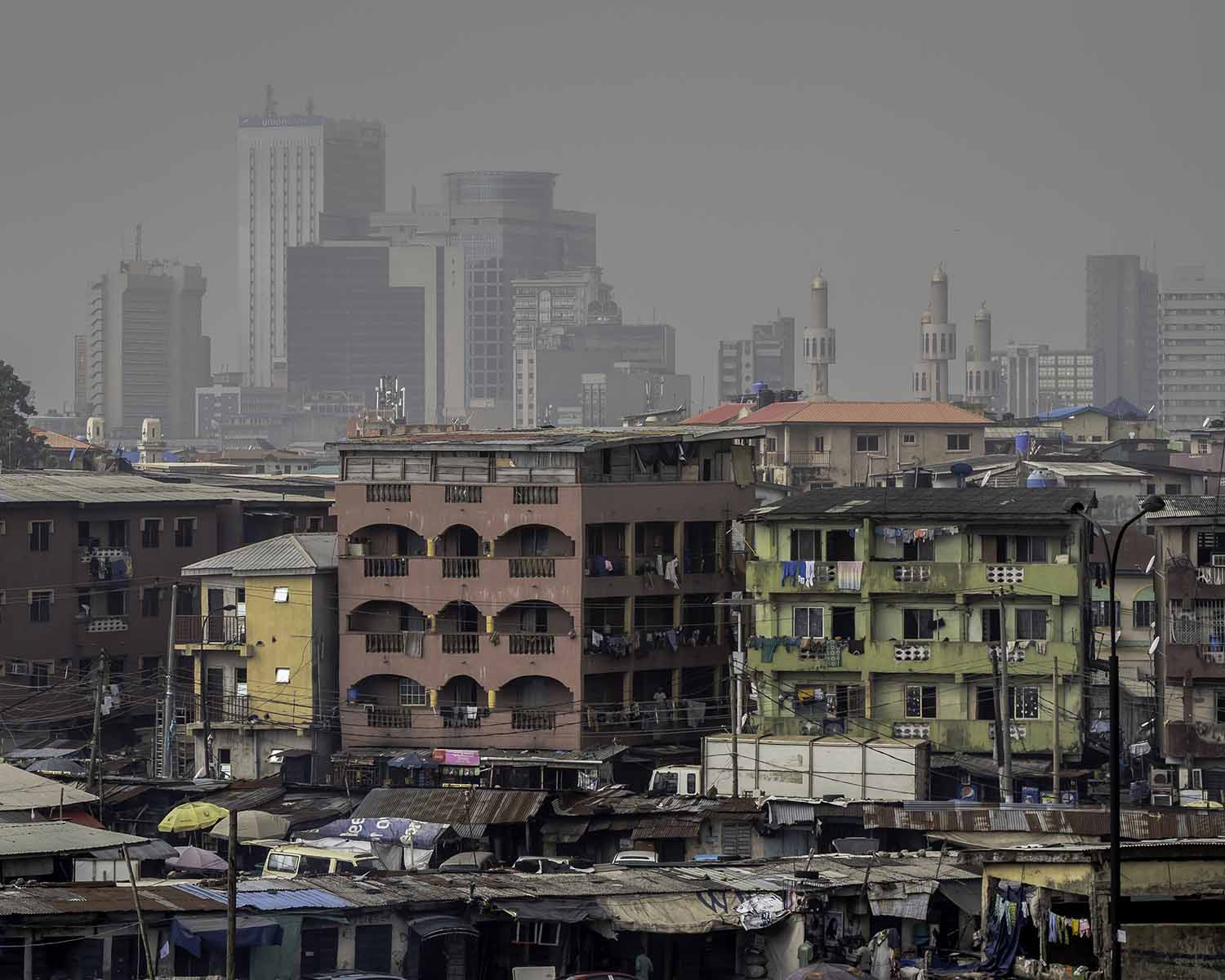
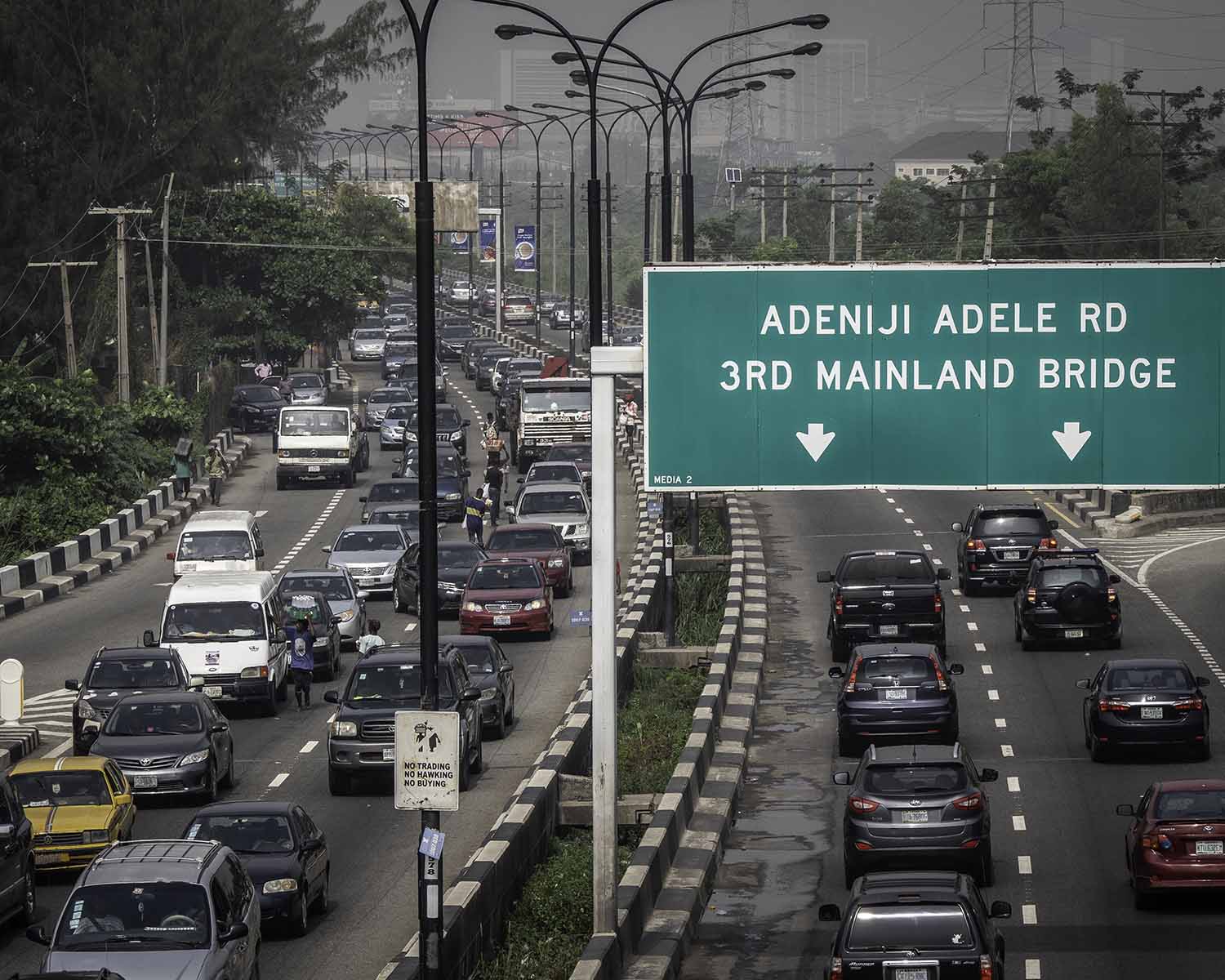
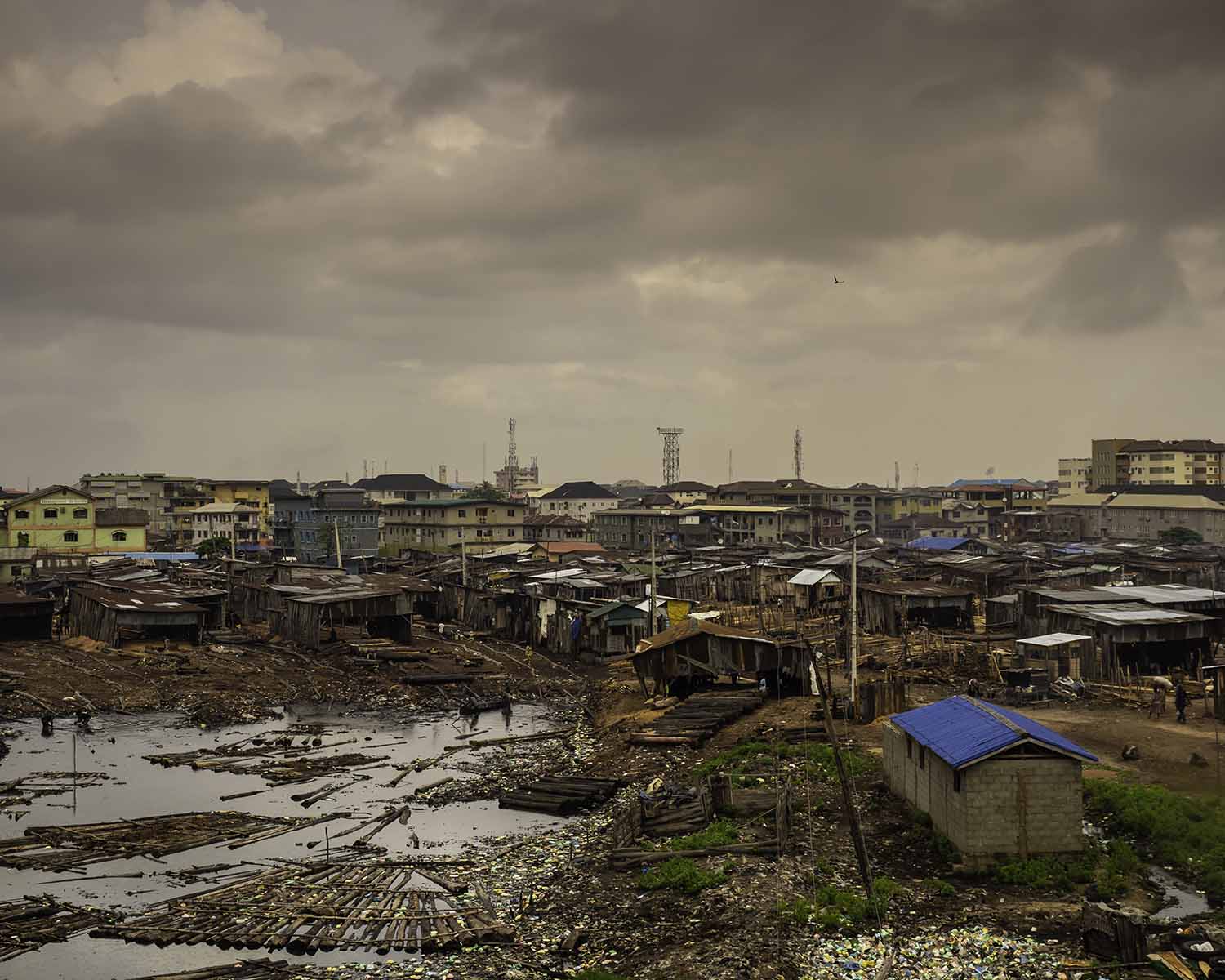
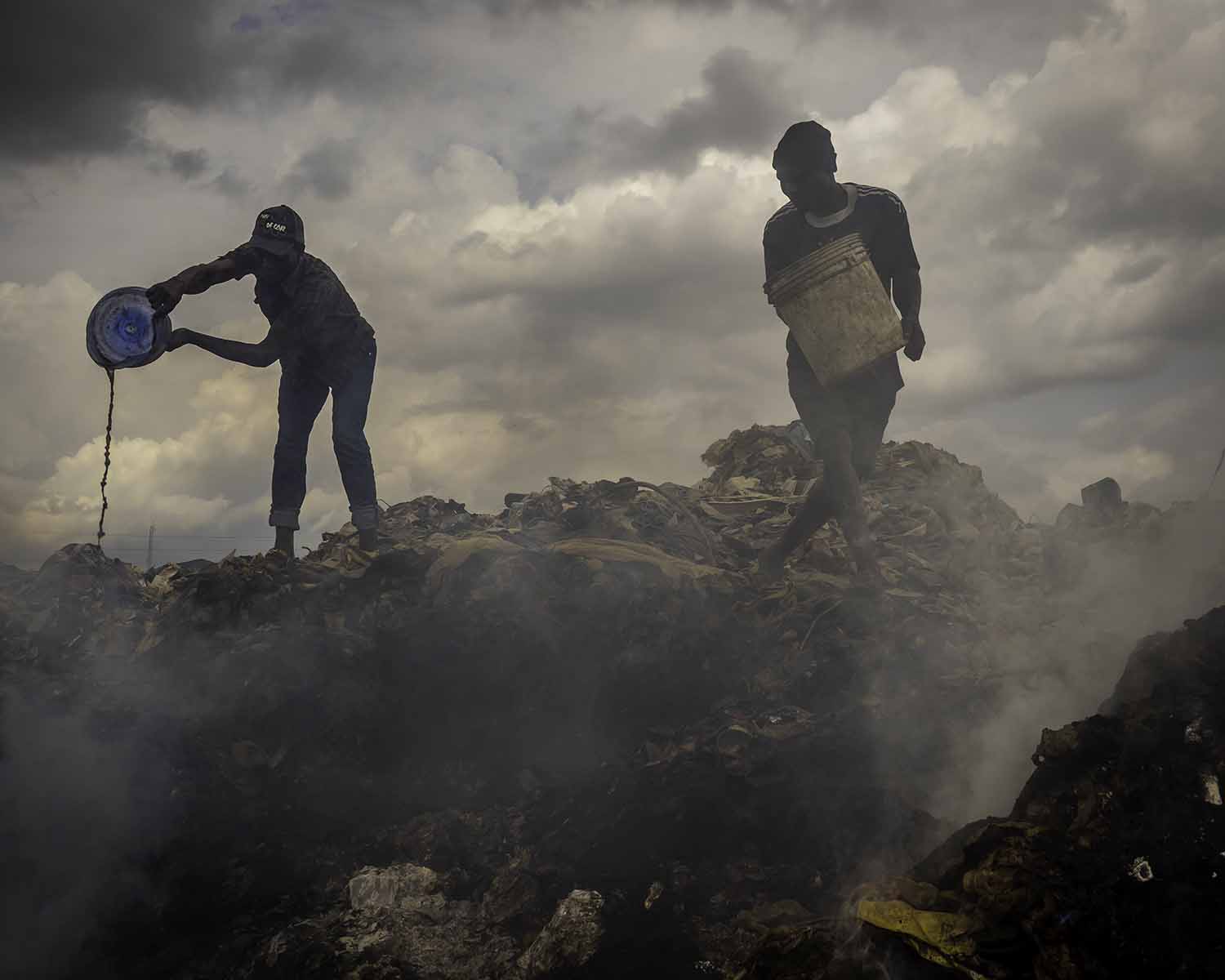
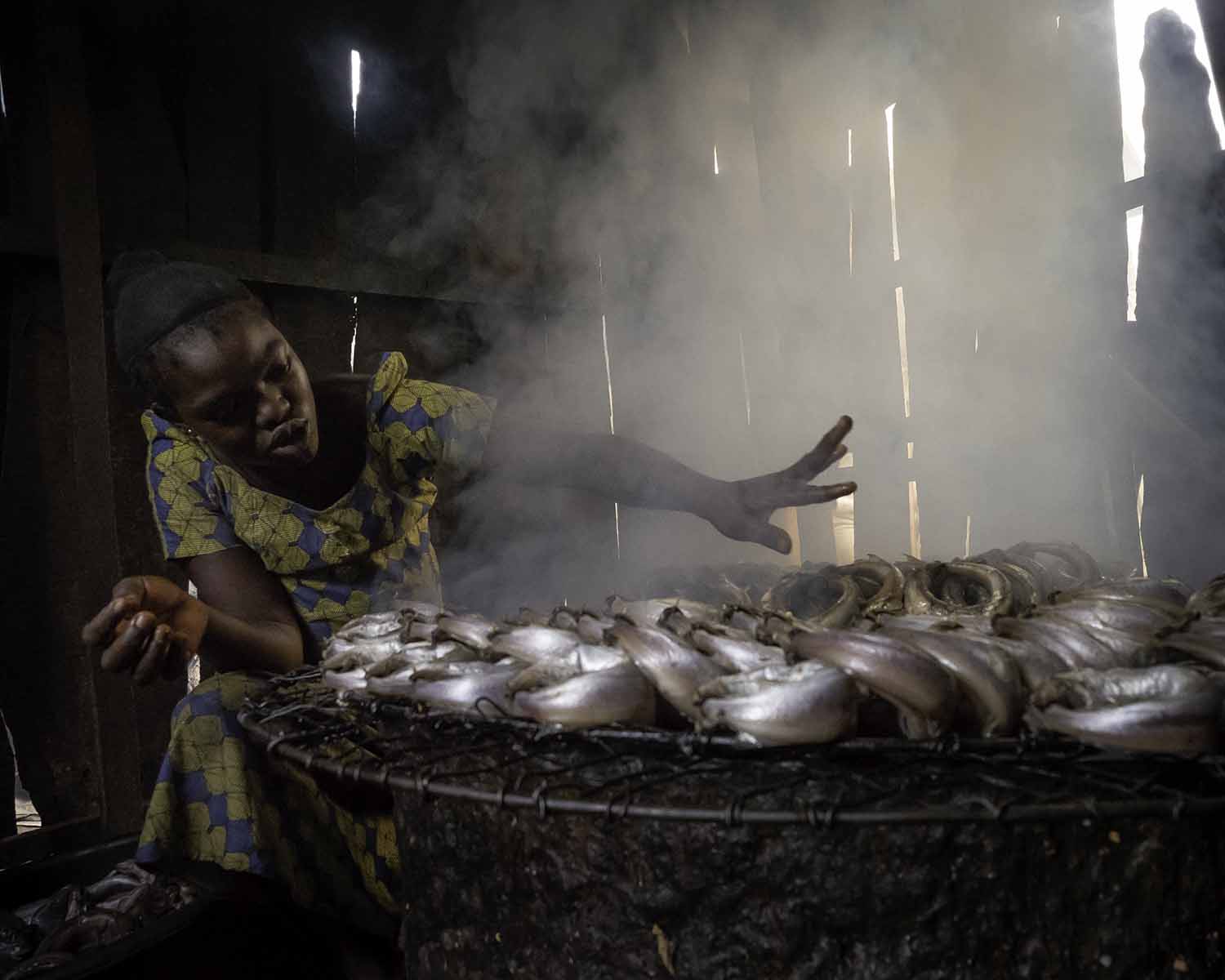
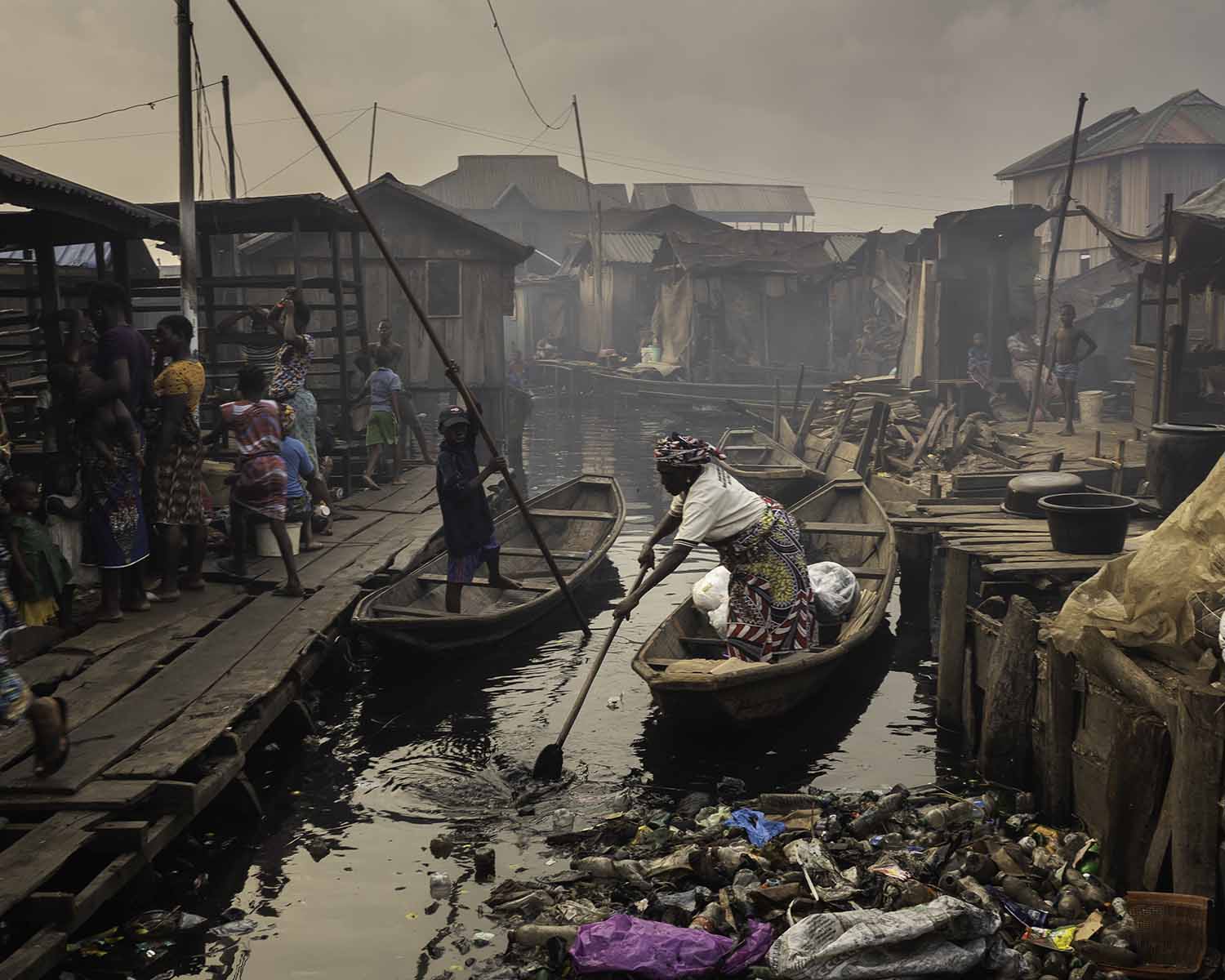
A global study published in 2018 by the research nonprofit Health Effects Institute in Boston and the Institute for Health Metrics and Evaluation at the University of Washington in Seattle, ranked Nigeria among those countries with the highest concentrations of population-weighted PM2.5 levels on average, year over year. And while earlier iterations of the report had showed some improvement in air pollution levels in the country, booming urban populations and expansive use of open burning continue to take a heavy toll, accounting for tens of thousands of deaths annually.
The teeming metropolis of Lagos makes the struggle plain. Smog was first reported in 2005 when the city woke to an unusually heavy haze that forced school closings. Today, Lagos is even more densely populated — some reports put the population as high as 21 million — and more polluted. As Africa’s largest city, Lagos presents an image on the world stage of a prosperous emerging metropolis. But behind the ongoing construction of new multi-star hotels and glossy mirror-clad high rises, development doesn’t hide the poverty and continued lack of functional infrastructure.
The roads are jammed daily with decrepit buses, cars, and long parades of oil tankers and container trucks, filling the air with exhaust fumes. Diesel-guzzling generators power everything from shop freezers to internet transmitter substations, while at the city’s outskirts, construction of what will become the world’s largest oil refinery — a $12 billion affair that its backers expect will process some 650,000 barrels of oil each day — carries promises of yet more air pollution.
Across the Lagos Lagoon, a perpetual haze hangs over the Makoko district, built largely on stilts, where women sit in cramped, unventilated spaces stoking fires to season their fish.
A RARE DATASET Scientists describe air pollution monitoring in Nigeria as “rudimentary, discontinuous, and limited in scope and duration.” Below is a thin slice of data from a single monitoring station in the former capital of Lagos, from early March to mid-July, 2018.
INTERACTIVE CHART Click, drag, or resize the box at the bottom of the chart above to zoom in or out on the data, and to change the timespan covered. Hover over individual data points to see the average one-hour PM2.5 levels at that date and time. (Note: Gaps in data indicate that no reading was taken.)
Without regularly published air quality indicators, however, the extent of Lagos’s pollution is hard to quantify. In one of the few publicly available studies, researchers from two Nigerian universities reported in November 2016 that they’d recorded PM10 and PM2.5 during rush hours at 476 micrograms per cubic meter and 217 micrograms per cubic meter, respectively.
The study underscored the danger that traffic officers and street vendors face daily as they weave their way through traffic jams in the former capital — and it spoke indirectly to assaults on public health experienced across the nation’s fast-growing and haphazardly regulated cities, where industrial growth, persistent poverty, and official indifference — or unofficial malfeasance — mingle to perpetuate an air pollution problem that ranks among the worst in the world.
“We the citizens are paying for it,” said Port Harcourt resident Andy Obuoforibo, “with our lives and with our health.”
Anna Cunningham is a freelance foreign correspondent based in Lagos, Nigeria since 2014. She has been a broadcast journalist for 19 years, including 10 years on staff with the BBC.
READ THE COMPLETE SERIES
India, Bangladesh, China, Nigeria, Chile, United States, Macedonia


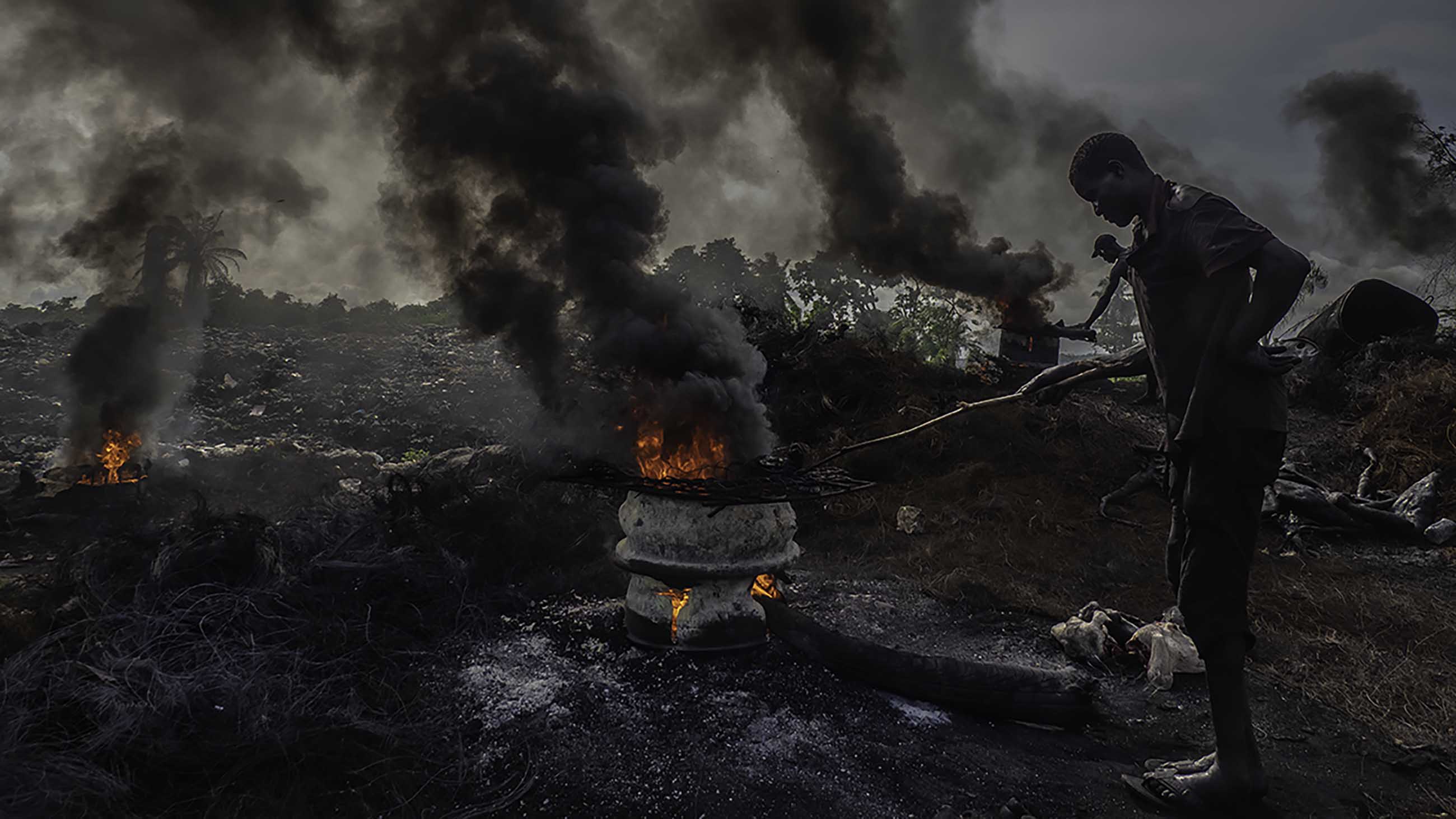
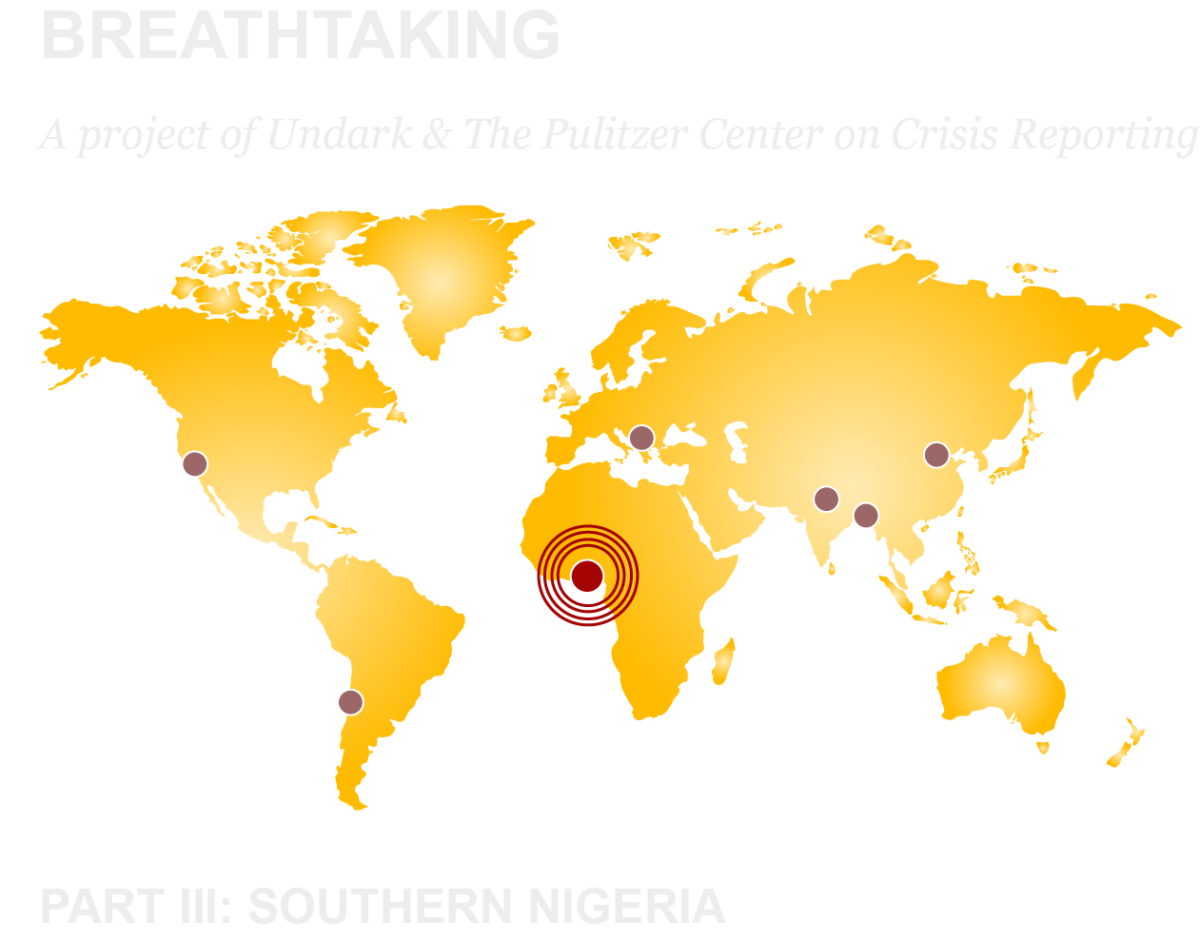
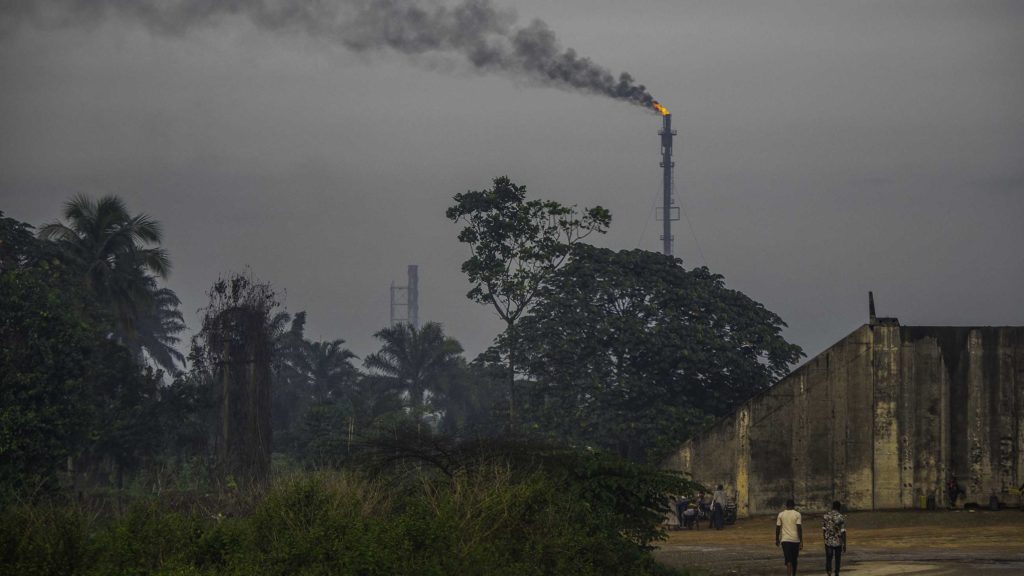
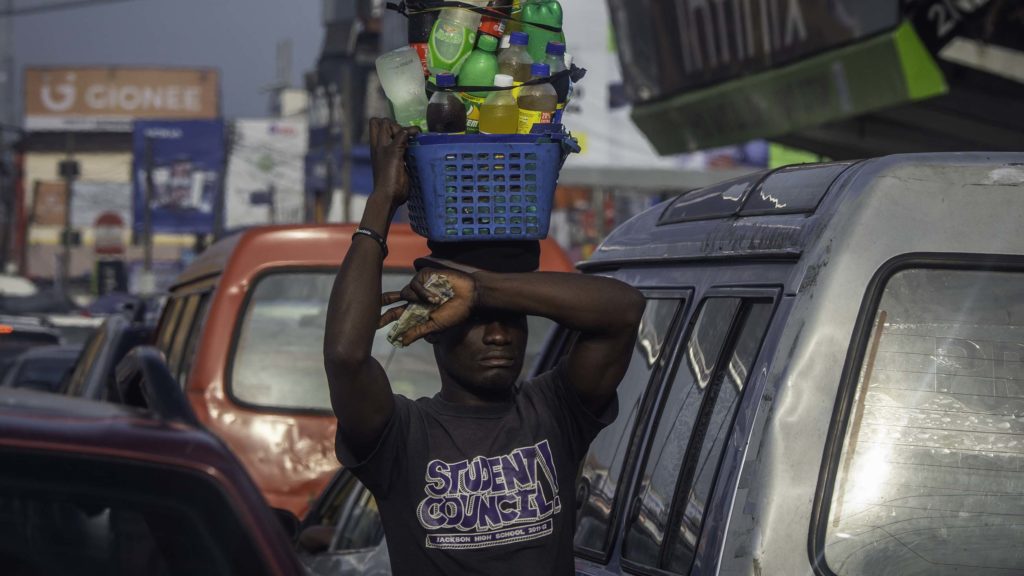
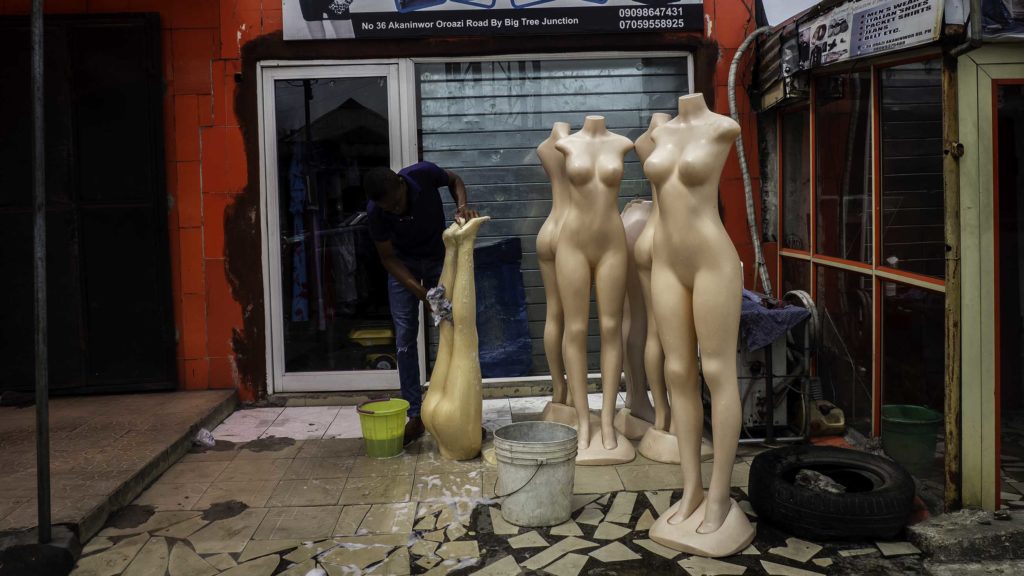
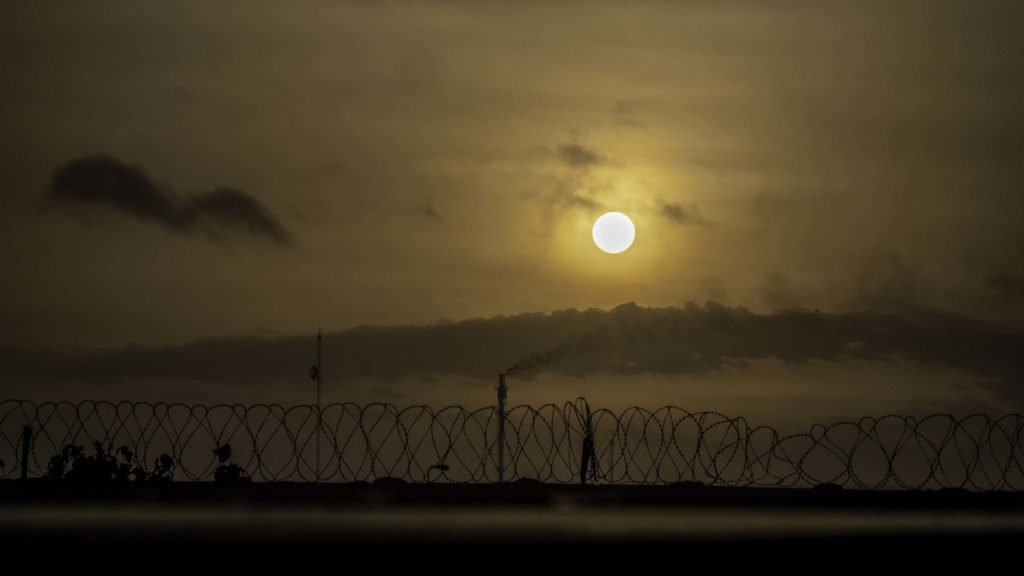
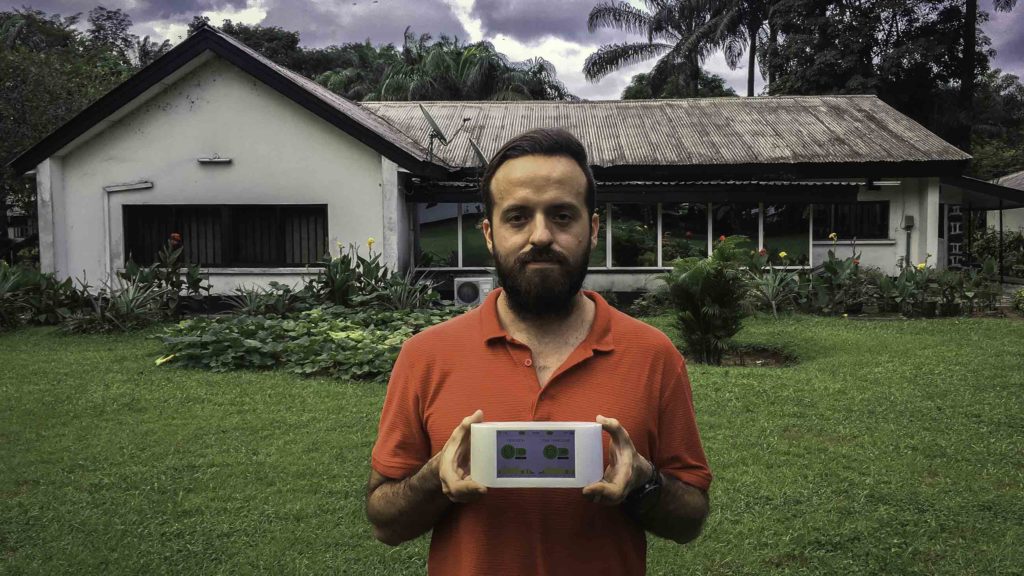
Comments are automatically closed one year after article publication. Archived comments are below.
Look at these people, performing an equivalent to slave labor, in order to dispose of the worlds trash. So what if we outlawed slavery at home, what good does it do if we just send all of the slave labor to other countries that still treat people like literal shit?
We need a worldwide movement to fix these problems.
This is an important issue and needs to be resolved for other countries as well
It starts with education of the children;
Google is right to develop internet access provisions
and connect the planet.
This generation is already lost, the next generation
will have the knowledge of structure and policy
to formulate a sustainable community.
Unfortunately in my country each time you call out leadership failure to protect the welfare of the ordinary citizenry, your views are quickly termed political jobbers. The risk of black soot over the city of Port Harcourt and its environs is something we have called out time and time again. I am very fearful about the long term implications of this neglect over the citizens and people living in Rivers State. Prior to 2018 the spread of black soot was noticeable only within the Port Harcourt metropolis, but over time and presently so, the dispersals have grown beyond the capital city, soon, if caution continues to be thrown to the winds by the authorities, the entire state will be enmeshed in it as we have begun to observe. Notwithstanding the divide in politics across the State, I do believe that given the sensitive nature of this problem, politicians on both sides, be you a federal minister, federal legislators in Abuja to Commissioners and State House of Assembly Members in Port Harcourt have both moral and legal call to duty to save our people from this time bomb. These leaders know the cause of this problems, we can’t pretend about this sacred truth, action must be taken now.
What I found interesting was the 90% reduction in flaring by SPDC, the author needs to look at how many land and swamp blocks SPDC has sold off under the Governments program of selling of the marginal fields. I think you would find this accounts for the reduction. If you drive in the bush around OH either in the early morning or the evening the bush is still covered in an orange glow from the gas flares.